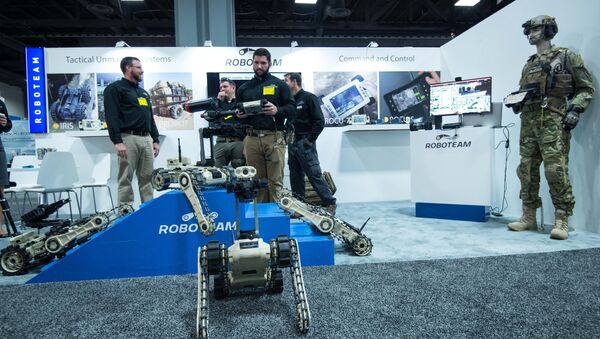Israeli firm Roboteam is competing with Massachusetts-based Endeavor Robotics over a series of major contracts to build the US army’s top-notch generation of ground robots. Those machines will be designed to be smarter and easier to run than the remote-controlled rovers that have helped troops disable bombs for more than 15 years.
Notably at stake is a lucrative contract worth $429 million for 3,000 backpack-sized robots that can defuse bombs and reveal enemy positions. The machines in question are easily manoeuvrable, and can be “carried by infantry for long distances without taxing the soldier,” said Bryan McVeigh, project manager for force projection at the Army’s research and contracting centre in Warren, Michigan, as cited by The Times of Israel.
The project is aimed at helping troops “look around the corner, over the next hillside and let the robot be in harm’s way and let the robot get shot,” said Paul Scharre, a military technology expert at the Center for a New American Security.
Meanwhile, Chinese, Russian and US firms have recently been increasing their investments in the industry.
The chief of the Army, Gen. Mark Milley, noted that adversaries like China and Russia “are investing heavily and very quickly” in the use of aerial, sea and ground robots. And now, he added, “we are doing the same.”
Such a massive breakthrough, with Israel also partaking in the competition for the contract, showcases how fear that China could outrun the US in terms of technology pushes even small-scale ventures to play a geopolitical game in order to beat rivals. Also, there is still a question of whether defence technology should be outsourced only to American companies, or not.
READ MORE: 5G Technology Arms Race Between US and China is the Real Deal — Security Expert
Concerns that widely used commercial drones made by the Chinese company DJI, which has traditionally manufactured the aforementioned systems, could be vulnerable to spying led the American army to ban their use in 2017.
This August, meanwhile, the Pentagon published a report that focused on China conducting surveillance with an intent to acquire foreign military technologies, sometimes by exploiting students or researchers as “procurement agents and intermediaries.” Months later, at a December defence expo in Egypt, some US firms spotted what they viewed as Chinese spin-offs of their automated systems.



